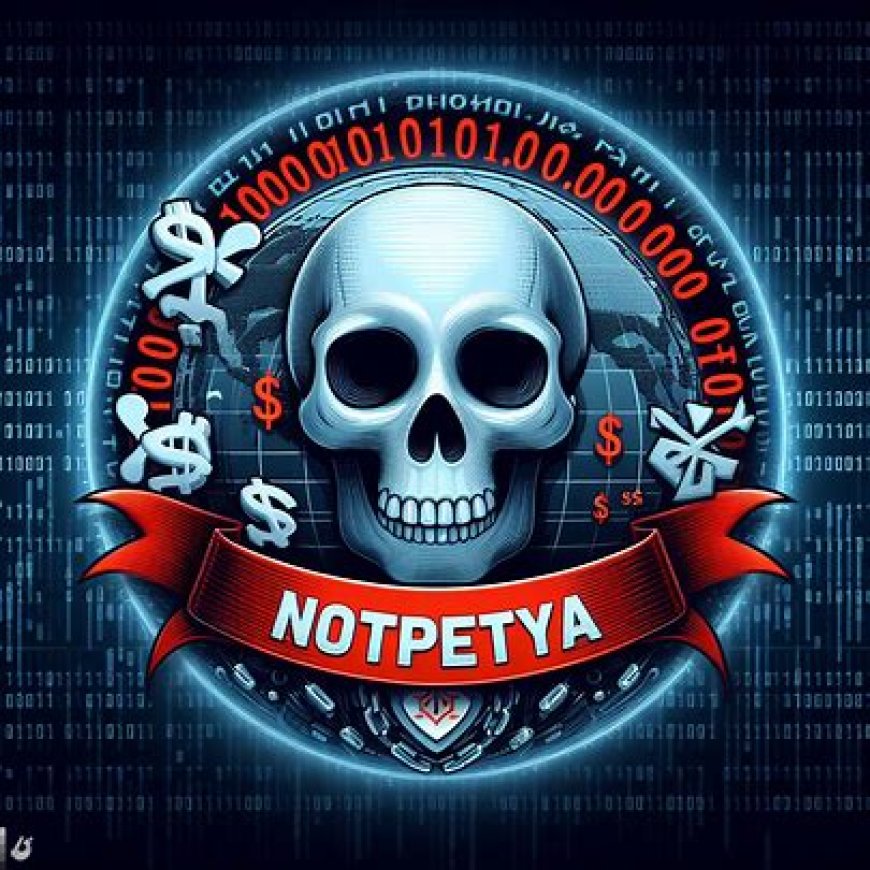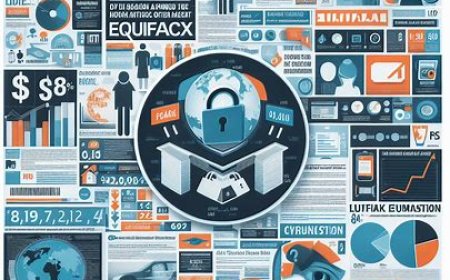NotPetya Unleashed: A Global Cyber Catastrophe in 2017
Although it is difficult to identify the perpetrators of cyber attacks with absolute certainty, the evidence has sparked controversy and tension at the geopolitical level, particularly in the relationships between Russia, Ukraine, and Western countries. NotPetya serves as an example of how cyber attacks can become instruments in geopolitical conflicts, and the involvement of government entities in such attacks can create broad and profound impacts.

The NotPetya cyberattack in 2017 marked one of the most damaging and coordinated episodes in the history of cyber warfare. Beginning as ransomware targeting Ukraine through fake software updates from M.E.Doc, NotPetya quickly spread globally, wreaking havoc and destroying data across various sectors. Although initially appearing as an attempt to extort ransom, the attack had a more sinister goal of data destruction and infrastructure damage. By encrypting data and erasing master file records and boot records, NotPetya caused deep and challenging-to-repair damage. Ukraine bore the brunt of the attack, and its impact extended to multinational companies and government institutions worldwide. Apart from economic losses, NotPetya underscored organizations' vulnerability to cyber attacks and the need for enhanced cybersecurity defenses.
The chronological timeline of the NotPetya attack in 2017 is as follows:
1. Fake M.E.Doc Software (June 2017): The attack commenced through fake software updates from M.E.Doc, a popular accounting software in Ukraine. It was designed to spread through these software updates, and users unknowingly infecting their systems with NotPetya.
2. Rapid Spread (June 27, 2017): NotPetya spread rapidly, infecting thousands of computers in Ukraine and several other countries. Government systems, companies, and financial institutions were the primary targets. Initially resembling ransomware, it was later revealed that its actual goal was data destruction.
3. Main Victim Ukraine (June 27-28, 2017): Ukraine became the main victim of the attack. Several government agencies, companies, and banks reported severe damage to their systems. Nuclear power control centers, airports, and energy companies were among the sectors most significantly affected.
4. Global Impact (June 28, 2017): The attack quickly spread worldwide, affecting multinational companies and government institutions in various countries. Nations like Russia, the UK, France, and the United States also reported infections and losses.
5. Data Destruction (June 28, 2017): Despite initially masquerading as ransomware with ransom demands, NotPetya did not provide means to recover data. The malware damaged and encrypted data, including crucial system files for booting, making data recovery extremely difficult or even impossible.
6. Suspected State Involvement (Mid-2017): Although challenging to definitively attribute, the attack was associated with the Russian government by some parties. These suspicions were based on technical indicators and political context.
7. Economic and Operational Impact (2017): The NotPetya attack had a significant economic impact, with companies suffering substantial financial losses due to system damage and data loss. Additionally, some companies experienced significant operational disruptions.
8. Responses and Reactions (2017): Countries and international institutions responded to the attack by issuing warnings to organizations and taking steps to mitigate its impact. Discussions on cybersecurity and international cooperation in facing cyber threats gained prominence.
9. Warnings and Learning (2018 and beyond): The NotPetya attack served as a serious warning about the risks of sophisticated and destructive cyber attacks. Many organizations and countries intensified their efforts to protect their information systems and critical infrastructure from increasingly complex cyber threats. The attack also became a source of learning for the cybersecurity industry and governments worldwide.
The impact of the NotPetya attack in 2017 was significant, both economically and in terms of cybersecurity. Here are some key impacts of the attack:
1. Financial and Operational Damage: Many companies and organizations victimized by NotPetya experienced significant financial losses. Additionally, some companies suffered serious operational disruptions. Data loss and system damage could lead to extended downtime, affecting production, services, and an organization's ability to operate normally.
2. Disruption in Critical Infrastructure: The attack specifically targeted critical infrastructure sectors, such as nuclear power control centers, airports, and energy companies in Ukraine. Disruptions in this sector could have long-term impacts on a country's stability and national security.
3. Global Spread and Diplomatic Tensions: NotPetya rapidly spread to various countries, creating diplomatic tensions among affected nations. It also heightened global concerns about cyber threats that could cross national borders and harm multiple parties.
4. Growth in Cybersecurity Awareness: The attack triggered increased global awareness of complex and destructive cybersecurity threats. Many organizations and governments began prioritizing cybersecurity and implementing measures to protect their critical infrastructure.
5. State Involvement and Controversy: While it's challenging to definitively identify the perpetrators of the cyber attack, it was suspected to be associated with the Russian government. These allegations sparked controversy and geopolitical tensions among the involved countries.
6. Changes in Cybersecurity Policies: In response to the NotPetya attack, some countries and organizations altered their cybersecurity policies. This included increased international cooperation in combating cyber threats and changes in approaches to detect, prevent, and respond to cyber attacks.
7. Lessons for the Cybersecurity Industry: The attack provided valuable lessons for the cybersecurity industry. Cybersecurity companies and governments learned from the tactics and techniques used in this attack to enhance their capabilities in detecting and countering similar cyber threats in the future.
8. Ethical and Legal Considerations: The NotPetya attack raised ethical and legal questions regarding the use of cyber weapons by nations. It sparked debates about norms and rules in international cybersecurity, as well as the need to formulate a legal framework to address cyber threats.
The NotPetya attack in 2017, with its destructive and sophisticated nature, created long-term impacts in the fields of cybersecurity and geopolitics. Attacks like these emphasize the need for global cooperation and collective efforts to combat cyber threats that can jeopardize world stability.
Responses to this attack underscore the importance of international cooperation in facing cyber threats involving multiple countries. The NotPetya attack provides valuable lessons about the escalation of ransomware attacks into tools for destruction and destabilization with significant global consequences.
Although it is difficult to identify the perpetrators of cyber attacks with absolute certainty, the evidence has sparked controversy and tension at the geopolitical level, particularly in the relationships between Russia, Ukraine, and Western countries. NotPetya serves as an example of how cyber attacks can become instruments in geopolitical conflicts, and the involvement of government entities in such attacks can create broad and profound impacts.
(source: chatgpt)
What's Your Reaction?
























































